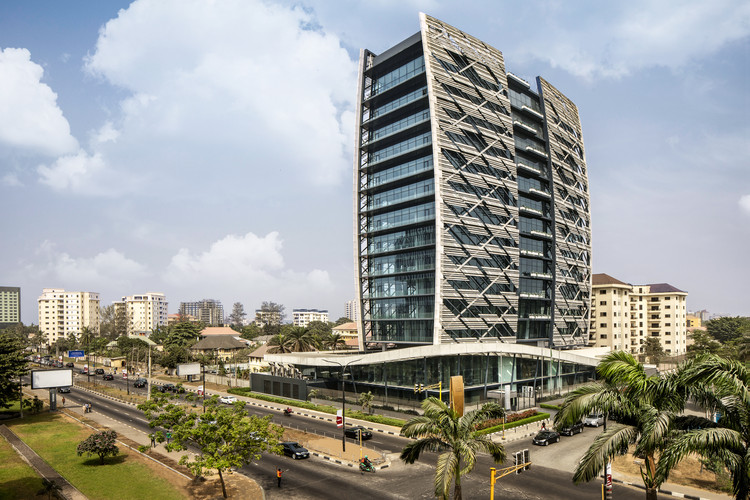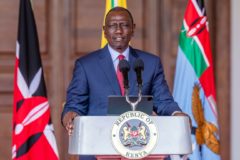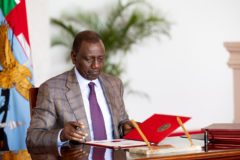Nigeria’s minister of communications and digital economy Prof Isa Ali Ibrahim Pantami has succeeded in amending the Nigeria Startup Act (NSA) act. What does it imply?
Nigeria’s minister of communications and digital economy Prof Isa Ali Ibrahim Pantami has successfully instituted a new board to drive the Nigeria Startup Act (NSA). TechCabal exclusively learnt that despite questions about its legality, the minister has succeeded in this move, two days to the official end of President Muhammadu Buhari tenure.
Prior to now, TechCabal exclusively reported that Prof Pantami asked President Buhari to not only absorb the 27-member Nigerian Startup Implementation Committee into the Nigeria Startup Act council meetings but also give these members a four year tenure — something that council members on the NSA council don’t have.
A source close to the matter told TechCabal, “The 27-member Startup Implementation Committee was set up to come up with a framework for implementation of the startup act. Their role is an adhoc committee. They are a think-tank on how the act will be implemented. They are not to be confused with the members of the Nigeria Startup Act council.”
The source explained that the minister also wanted the chairman of the committee to sit in the council, thereby creating a new role that wasn’t in the startup act when it was signed into law.
In a new memo regarding that same meeting, TechCabal observed that the approval for creating the new board has already been obtained by the minister.
“The approvals were sought and obtained by virtue of the Section 4 that gives the President powers to issue directives of a general or specific nature/character relating to the Act,” the comment under the overview in the minutes of meeting read.
Following up on that approval, the memo revealed that the council is seeking to appoint a Start-up Portal Coordinator and commence bidding process for a Council Agent.
Reacting to the development, Representatives of the Startup Consultative Forum, consisting of Davidson Oturu, Mohammed Jega, Amal Hassan and Eloho Omame have frowned at the developments regarding the minister’s desperation to adjust the composition of the NSA council.
In a letter addressed to the Chairman of the council, they stated that they were invited to the 2nd meeting of the Council scheduled for 4:30pm on Tuesday, May 23rd, 2023 and they joined in virtually. But as at 6:30pm, the meeting was yet to commence as the Honourable Minister for Communications and Digital Economy was said to have been attending the Federal Executive Council (FEC) meeting. They accused the minister of conducting a hurried meeting with only four members of the council as against the stipulated quorum of eight people alongside the chairman and two members of the private sector.
“Having waited in some cases for up to two hours, our members, who had other pressing engagements, had to leave the meeting. It is noteworthy that the meeting was not called to a formal start in the Honourable Minister’s absence and further, that for those who joined via video conference, the microphone at the meeting venue was kept on mute throughout so they were not party to any conversations that may have occurred while waiting for the meeting to commence formally.
“It has since come to our attention that following the departure of all of our members from the meeting, online and in person, the Honourable Minister subsequently arrived and proceeded to hold a meeting with only four other Council members present. We are constrained to refer to Section 4 of the Nigeria Startup Act (NSA), which provides the 14 members of the Council, and Section 3 of the Schedule to the NSA, which states that the quorum for the meeting shall comprise eight members, with at least two members chosen from the private sector in attendance. We are the Council’s members from the private sector, and none of us were in attendance. Thus, in the absence of a quorum, the meeting could not have proceeded,” the letter read in part.
The representatives of the Startup Consultative Forum said they were shocked to have received a document from the secretariat of the National Information Technology Development Agency (NITDA), showing that the meeting held with certain decisions ratified at the purported meeting.
“Of grave concern among the items for consideration is the approval being sought for the Chairman of the Startup Implementation Committee (NSIAC), who leads an ad hoc body that is not statutorily appointed under the NSA, to be elevated to a Council member and attend meetings of the Council; thereby increasing the statutory number of members of the Council from 14 to 15 without an amendment of the law by the National Assembly.
“As members of the Council, we are surprised to have only been notified by the aforementioned report shared following the purported meeting, that this matter has already been approved by Mr President. In our view, this action is highly irregular. Such an approval should not have been sought in the first place as it is a contravention of an existing law. Furthermore, it is our humble submission that any attempt to imply that the 2nd meeting of the Council held on Tuesday, 23rd May 2023 will be firmly resisted. In the absence of the statutory quorum, such a meeting is illegal, null and void ab initio,” the letter stated.
The group urged the council to direct the secretariat to thoroughly review the irregularities that occurred during the recent meeting and take appropriate actions to rectify the situation. They also pressed for the importance of the appointment of a Council Agent in accordance with Section 8 of the Nigeria Startup Act, who would be tasked with monitoring and implementation of the provisions of the law rather than relying on ad hoc arrangements.
A startup lawyer Oyindolapo Olusesi explained that no member can be added into the NSA council other than those provided for under the act.
“As far as the constitution of the council is concerned, the law is clear. No other person can be a member except those expressly mentioned under the act. Thus, to answer the question of whether the President can unilaterally expand the membership of the NSA council, by relying on section 44, it would have to be determined if such an act would be considered “matters of policy”, or a directive relating to the performance of the functions of the Council. It is my humble opinion that the expansion of the Council’s membership, in this case to allegedly include the chairman of the implementation committee, doesn’t fall within these exclude categories, under which the President may make guidelines or give directives, pursuant to section 44. However, it is important to note that the President may in his considered opinion remove a person from membership of the council, and appoint where there is a vacancy,” Olusesi explained.
Going further, the lawyer said the council could actually decide to bring in an external person, solely for advisory purposes. Speaking on the matter of quorum, Olusesi said even though the act does not expressly legislate on the issue of lack of a quorum, resolutions generally passed at such a meeting called by the minister are not binding.
However, a member of the Startup Consultative Forum Davidson Oturu explained that the act clearly legislates on the issue of quorum under the supplementary provisions relating to the council. “It is in black and white,” he responded to Olusesi statements. He also pointed out that the act is clear on who can attend but not vote.






















